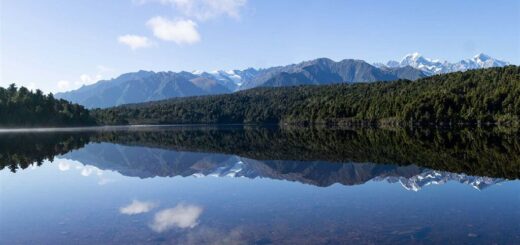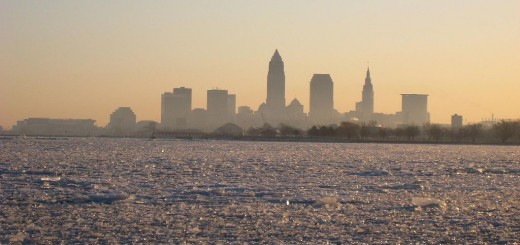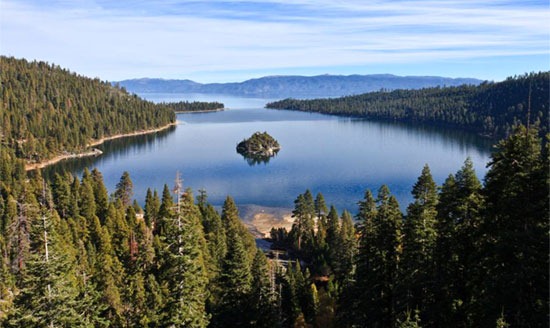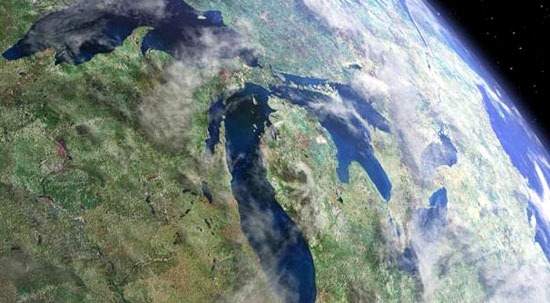Climate Change To Alter Hydrology Of Lake Michigan Basin
1Lake Michigan had ice cover 10 days earlier in 2014 than the previous year, according to mlive.com. But the basin’s hydrologic cycle that relies on this type of winter precipitation storage may come to an end in the not-too-distant future.
According to a study from the U.S. Geological Survey, climate change threatens to alter hydrology in the Lake Michigan basin by shifting its system to one more relying on waters distributed evenly throughout a given year. The winters of today will be largely undermined by increased air temperatures, authors say, that will likely increase annual streamflows.

View of lighthouse and Lake Michigan from Lakeshore State Park. (Credit: Flickr User Yinan Chen via Creative Commons 2.0)
Among some of the effects that this hydrological shift may cause, scientists expect:
- longer growing seasons that may increase evapotranspiration from soil and plants;
- drier soils in coastal wetlands;
- increased streamflows in the northern regions of the lake’s basin, namely northern Michigan and northeastern Wisconsin;
- and more winter flooding due to quickened snowmelt and lower levels of winter snowpack.

Map of the Lake Michigan basin. (Credit: Wikimedia Commons User Drdpw)
Generally speaking, streamflows are expected to increase at most of the study sites. Included in the analysis were more than 300 USGS stream gauges and NOAA climate stations. It was completed as part of the Great Lakes Restoration Initiative by the USGS’ Iowa and Wisconsin Water Science Centers.














Your assessment summary includes, as one of the signal effects of a your anticipated hydrological shift, “more winter flooding due to quickened snowmelt and lower levels of winter snowpack.”
First, quick or slow, the quantity of snowmelt is dependent on total snowpack, not speed of melting. Given any level of snowpack, flooding would result ONLY from sudden temperature increase, and the greater the increase, the briefer the effect for any given amount of snowpack. “Lower levels of winter snowpack” might produce greater sudden melting, but can’t possibly produce more winter flooding in a macro-hydrological sense. Plainly speaking, less snow means less flood risk.